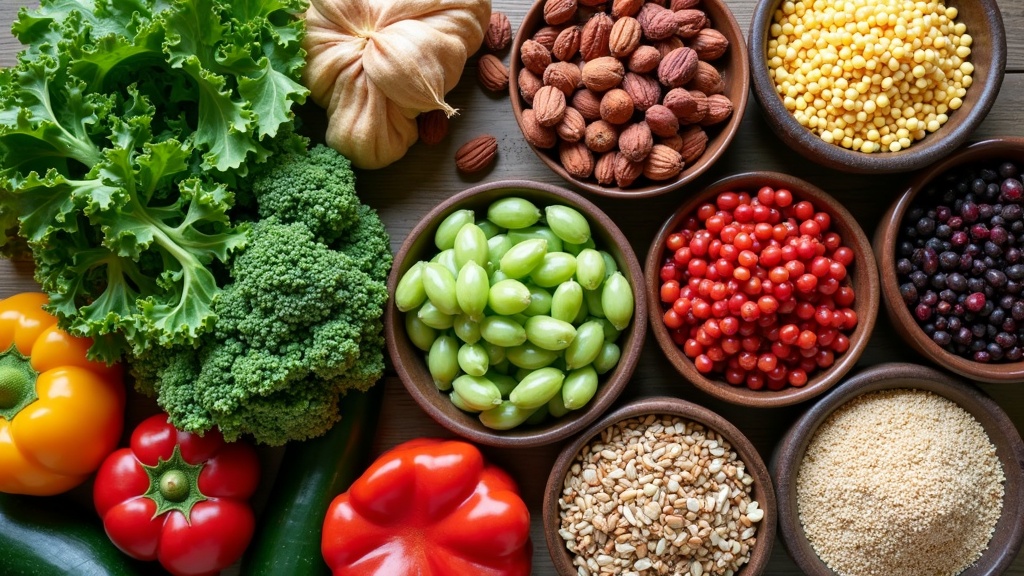Research into plantbased nutrition has picked up serious momentum lately, with new studies popping up almost every month.
The latest research is bringing fresh energy to conversations around why plantpowered eating can be a smart choice for health and longterm well-being.
With all this solid data coming out, I’ve noticed a growing number of people giving plantbased diets a fresh look—not just for animal welfare or environmental reasons, but for the everyday health perks they support.
Here’s my take on what these new studies are saying and why they matter right now.

Latest Findings: Why Researchers Keep Returning to PlantBased Diets
Medical journals and research labs seem to be rolling out new papers on plantfocused nutrition each season.
The main thread connecting these studies is pretty clear: eating more plants and fewer animal products can have wide benefits.
For example, a 2023 paper from the American Journal of Clinical Nutrition found that people who get most of their calories from whole, plantbased foods tend to have lower risks for heart disease, certain cancers, and type 2 diabetes.
Another noteworthy update from the British Medical Journal noted that plantbased diets were linked with better mental wellbeing and more stable moods.
The science doesn’t mean you need to go strictly vegan to see improvements.
Many studies look at flexitarian diets, Mediterranean eating patterns, or anything that centers vegetables, fruits, beans, whole grains, nuts, and seeds.
Even making small, gradual switches in this direction seems to offer benefits according to recent findings from Harvard’s T.H. Chan School of Public Health.
It really drives home how accessible these perks can be for people at different stages of their food adventure.
Breaking Down What PlantBased Nutrition Means
There’s a lot of overlap among the terms you’ll see in plant nutrition research—plantbased, vegetarian, vegan, flexitarian, or Mediterranean diets.
The latest studies usually focus on eating patterns high in plant foods but low in processed and animalderived stuff.
Here’s a simple breakdown:
- PlantBased: Most calories come from plants, but may include small or occasional servings of animal products.
- Vegetarian: No meat or fish, but dairy and eggs may be included.
- Vegan: Excludes all animal products, including dairy, eggs, and honey.
- Flexitarian: Mainly plantbased with the occasional inclusion of meat, poultry, or fish.
Many studies group these together since the health benefits mostly stem from higher intake of whole, plantbased foods—think leafy greens, berries, whole grains, and beans.
Health Benefits Highlighted in Recent Studies
Lately, research has spotlighted a few areas where plantrich diets can really shine.
Below are some concrete health perks that keep coming up:
- Heart Health: One of the bigger clinical studies in 2022, published in the Journal of the American Heart Association, found that participants who switched to a plantcentered diet saw a decrease in LDL cholesterol (the “bad” kind) by up to 15%. Those changes led to lower blood pressure and less inflammation. Two big wins for the heart.
- Reduced Risk for Type 2 Diabetes: A 2023 metaanalysis from Diabetes Care linked wholefood, plantforward diets to improved insulin sensitivity and better blood sugar management. People following these diets were 23% less likely to develop type 2 diabetes compared to individuals on more animalbased eating patterns.
- Better Digestion & Gut Health: Diets packed with fiber from fruits, veggies, grains, and legumes feed “good” gut bacteria. Recent gut microbiome studies show these diets help boost the diversity and balance of gut flora, reducing risks for constipation, IBS, and other digestive problems.
- Lower Cancer Risk: Several recent studies also note reduced rates of some cancers (like colorectal and breast) among people who eat mostly plants. The National Cancer Institute has a helpful roundup of these findings if you want to check out more info.
The gist here is that the science keeps pointing in the same direction.
Plantbased eating patterns support a bunch of really important areas of our health, often in ways that people notice pretty quickly.
Tips for Switching Toward PlantBased Eating
Plenty of folks feel motivated by the research but aren’t sure how to move their plates in this direction.
Some of the new studies even offer practical guidance for making the change stick.
Here’s a distilled list from real world nutrition experts and clinicians:
- Take It Slow: You don’t need to go all or nothing overnight. Swapping animal protein for beans or tofu a couple nights a week is a solid start.
- Load Up on Variety: Mixing up your grains, beans, veggies, nuts, and seeds keeps meals interesting and helps cover all your nutritional needs.
- Go for Whole Foods: The research mostly focuses on less processed foods. Try incorporating more lentils, oats, brown rice, leafy greens, and sweet potatoes into your routine.
- Watch Out for Hidden Animal Ingredients: Sauces, dressings, and snacks sometimes contain milk, eggs, or fishbased additives, so checking those labels can be a smart move.
- Stay on Top of Nutrients: If you go fully plantbased, keep an eye on vitamin B12, iron, calcium, omega3s, and vitamin D. A registered dietitian can help with supplement advice if needed.
Making small swaps and paying attention to what works best for you helps set a manageable pace and makes the transition a smoother process.
You may be surprised at how easy it is over time.
Common Challenges and Smart Solutions
Switching up your diet can bring up a few bumps along the way.
Here are some roadblocks that studies and nutritionists often see, plus practical workarounds:
- Protein Concerns: A lot of people worry about not getting enough protein based on what they’ve always heard. Beans, lentils, tofu, tempeh, seitan, quinoa, and nuts offer plenty of complete and complementary proteins. Using a protein calculator from trusted sites like the Academy of Nutrition and Dietetics helps you keep track.
- Staying Full and Energized: Some folks find themselves hungry more often, especially at first. Boosting your fiberrich foods like beans, whole grains, and veggies helps with lasting satiety. Healthy fats from avocados, nuts, and seeds can also keep you feeling fueled.
- Dealing with Social Events: Eating out or going to family gatherings can get tricky when you’re new to this. Planning ahead, eating a little something beforehand, or offering to bring a plantfriendly dish usually keeps things stress free.
- Expense Worries: There’s a sense that eating plantbased might cost more, but research by Consumer Reports and other groups routinely finds that beans, whole grains, and seasonal vegetables can lower grocery bills compared to consistently buying meat and dairy.
It helps to remember that most of these issues are more common early on and tend to ease up with practice and a bit of planning.
More Insights: Special Considerations for Different Groups
Not everyone has the same nutritional needs, and the latest research recognizes this.
Pregnant people, older adults, athletes, and kids can all thrive with more plantbased meals, but some folks may need personalized tweaks.
For instance, athletes might need highercalorie meals with enough plant proteins for muscle repair, while older adults should watch B12 and protein intake a bit more closely.
Pediatrics groups suggest that kids and teens can do great on a plantbased diet, as long as they get enough calories and proper supplementation when needed.
Teenagers and young adults can also enjoy plantpowered meals, but maintaining variety and paying attention to vitamins and minerals is important.
Families can create balanced plates with beans, grains, colorful veggies, and fortified cereals or non-dairy milks to give a boost to nutrition.
Quick Answers to Questions About PlantBased Diets
Here are a few questions I hear frequently, backed by what I’ve learned from the newest studies and nutritionists in the field:
Question: Can a plantbased diet provide all the nutrients my body needs?
Answer:
For most people, yes. But it can take a bit of extra attention, especially for vitamin B12, vitamin D, iron, and omega3 fats.
Fortified foods, supplements, and a variety of whole plant foods usually cover the bases.
Question: Are processed vegan foods healthy?
Answer:
Occasionally enjoying them is fine, but studies suggest that whole, minimally processed plant foods support the best longterm health outcomes.
Question: Do I have to be 100% vegan to see health benefits?
Answer:
Nope! Evidence shows that even switching part of your diet toward plants can make a positive difference. Every plantbased swap counts.
Takeaways from the Latest Research
New research keeps pointing toward plantbased nutrition as a solid strategy for feeling good and supporting lasting health.
Swapping in more meals built around whole grains, beans, fruits, and veggies can bring a lot of benefits.
Your heart, digestion, and even moods may notice the change pretty quickly.
While every person’s nutrition adventure is unique, I’m seeing the science become more and more in favor of plantbased options as a realistic path to better well-being.
If you’re curious about specifics, sources like the American Journal of Clinical Nutrition, the Harvard T.H. Chan School of Public Health, and the Academy of Nutrition and Dietetics have tons of up-to-date info worth checking out.
Curiosity and small changes can lead to new habits, and the latest science definitely supports giving plantbased meals a go; whatever your starting point may be.
